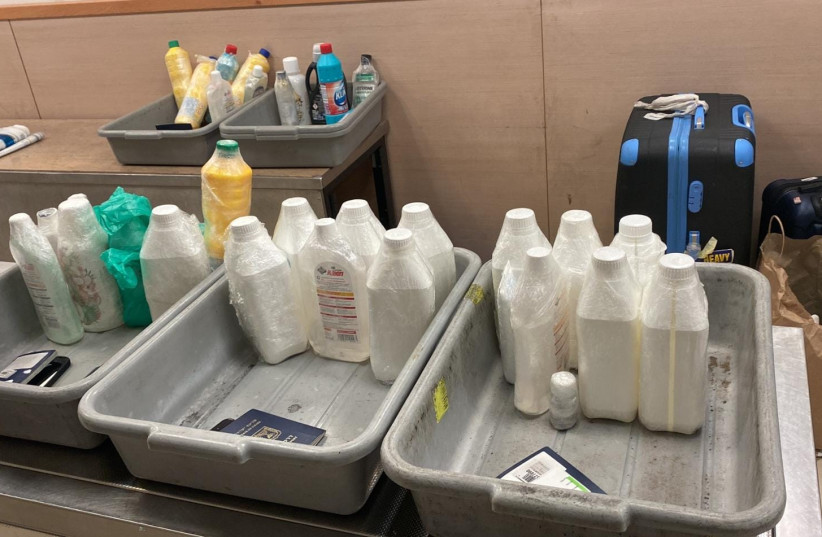A special discussion on the fight against date rape drugs was held by the Committee for the Advancement of the Status of Women and Gender Equality in the Knesset on Wednesday.
During the discussion on the issue, it became clear that the amount of date rape drugs smuggled into Israel in 2021 alone, which was 91 liters, would be enough to prepare 91,000 doses of date rape drugs.
No enough prosecution
The committee's chairwoman MK Pnina Tamano-Shata demanded from representatives of the Health Ministry to open a laboratory to detect date rape drugs using hair samples, in order to be able to prosecute criminals more effectively.
"My goal is for 2023 to be the year of the fight against this despicable, elusive and dangerous phenomenon for women, that takes away all control over their bodies. Such a laboratory will be opened in Israel. The state institutions should see themselves as the headquarters of the fight against the despicable phenomenon," Tamano-Shata said at the beginning of the meeting.
"We are looking into the possibility of opening a laboratory for hair testing in Israel," National Coordinator at the Health Ministry Alina Popperano replied to Tamano-Shata's request. "We will give an answer during the hearings to the High Court. This is our goal as well."
A police representative told the committee that in 2022, out of 6785 case files overall, only 26 cases were opened and 3 indictments filed for crimes that involve taking advantage of a situation 'that prevents free consent'.
While cases where date rape drugs were used do fall into this category, the police do not have specific data on offenses committed with rape drugs.
Unreliable data
Tamano-Shata heavily criticized the police for not providing detailed data on these incidents and demanded: "Insert a 'date rape drug victim' category in your systems. There must be a conscious change. That's why you were reprimanded. You will not come here and tell me that you don't know how many complaints there are from women who were given a drug without their knowledge and will."
A police representative went on to describe the data that is available for cases in which free consent was prevented. In 2020, 24 case files were opened and 6 indictments were filed for cases involving taking advantage of a situation without the possibility to consent. In 2021, 38 cases were opened and six indictments were filed and in 2022, 26 cases were opened and three indictments were filed.
The police representative explained that sometimes, files are opened without being sure that a crime has happened.
"We know something happened, a girl came and described a date that she doesn't remember what happened there," the representative said.
"If the woman says she doesn't remember what happened, 'I saw a blur', then this should jump out at you. There should be a clear procedure for all the [police] stations that when a woman says she isn't sure what happened, it must be classified. This has to happen, otherwise, there won't be an accurate picture of the situation," Tamano-Shata replied.
"73% of complaints are currently part of a criminal case. There are a lot of people who are ashamed to file a complaint and be investigated, but if at the end of the process, the case is closed and there is another complaint about the same person, then the first complaint will be important, it will be able to testify to a serial action pattern," Popperano said.

